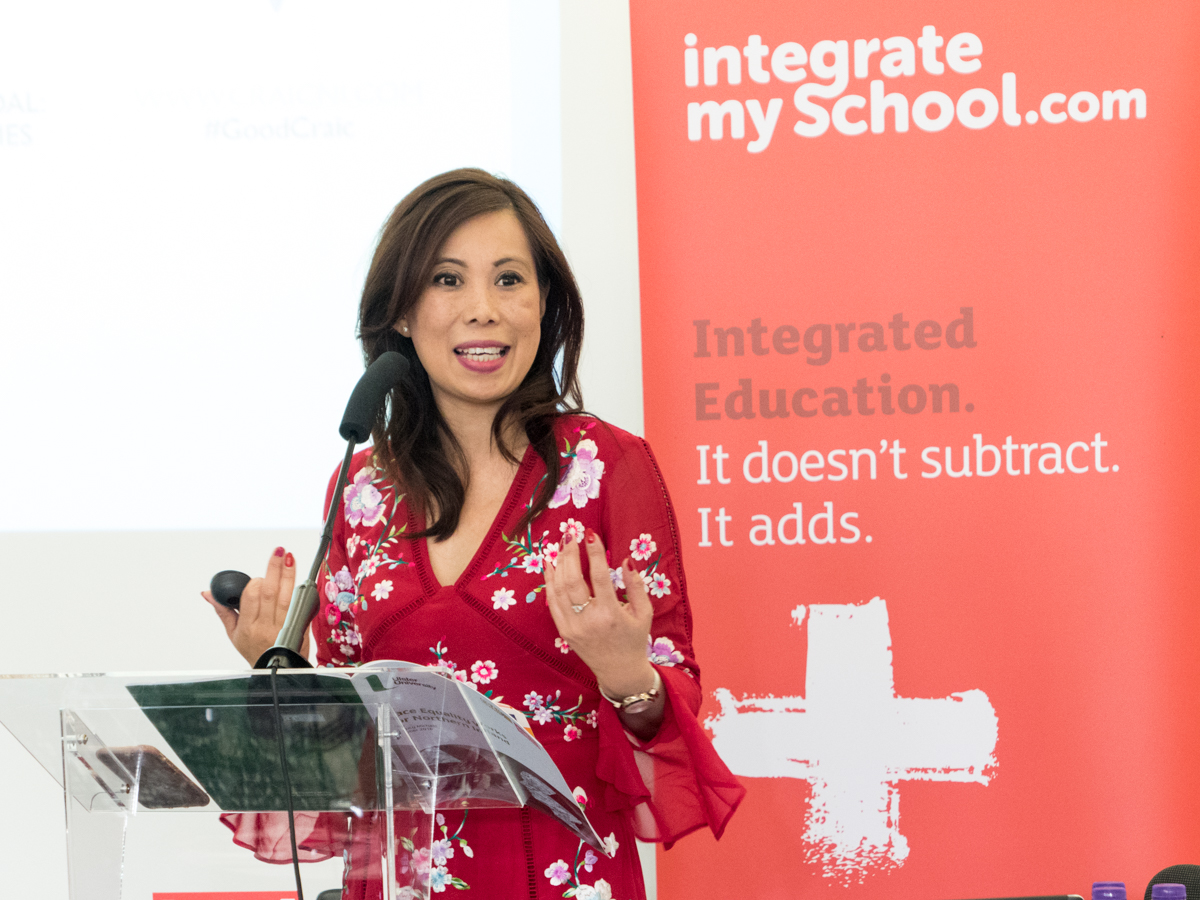Education: We all have a role to play
by Allan LEONARD
7 February 2019
The Integrated Education Fund hosted a day conference on some aspects of education in Northern Ireland, with a discussion on what role individuals, local communities, and organisations can play in realising a better vision. Contributors included: Baroness May Blood (Integrated Education Fund (IEF)), Dirk Schubotz (Queen’s University Belfast), Mairead McCafferty (Northern Ireland Commission for Children and Youth (NICCY)), Eileen Chan-Hu (CRAIC NI), Maire Thompson (Hazlewood Integrated College), Jayne Thompson (ParentKind), and Charmain Jones (Rural Community Network (RCN)).
The first part of the conference focussed on research on young people’s attitudes to education and community relations. This was followed by a session that highlighted some challenges, such as wellbeing and mental health, diversity and inclusion, and dealing with difficult issues in a school environment. The final part provided inspiration, with some positive experiences from the engagement with parents and local communities.
Education: A passport to the future
The welcome address was by Baroness May Blood (Campaign Chair, IEF), who was pleased to be attending: “I’m always happy to be at a gathering of community people.”
Her big question was what is it about Northern Ireland’s education system that produces underachievement? She described her efforts with others to improve outcomes for those in her community at Shankill, in taking on the challenges of underachievement, teenage pregnancy, and non-employment. Their work resulted in the setting up an Early Years project, which received £6.5 million from Europe. She recalled at the time of the dismissive attitude from elected representatives: “What do you know? You’re only community people!” Blood replied with evidence, noting that Early Years programmes are commonplace today in Northern Ireland.
“Community can make a difference. We got to believe in ourselves,” Blood said.
In regards to integrated education, “We’re still pushing that snowball up the mountain,” Blood remarked. Yet she noted how much has been achieved here by parents and local communities. She also spoke of the need to evolve; it’s a dynamic relationship.
Blood finished by saying that her concern is not generating demand for integrated education, but in satisfying that demand, so as to keep people’s trust that integrated education can deliver. Yet her passion for integrated education is resolute: “Education is young people’s passport to the future.”
Turning mirrors into windows
Peter Osborne (Chair, Community Relations Council) asked the audience to consider what forward-looking ambitions does it have for Northern Ireland’s schools and education, saying that teaching children how to think is at least as important as deciding what to think.
Osborne quoted American journalist, Sydney Harris, who said that “the whole purpose of education is to turn mirrors into windows”. Osborne told the audience:
“We live in a society where we’re far too busy looking in the mirror of what was going on behind us — what other people were doing … We very rarely look at ourselves in the mirror to think about our role, collectively, in the past and where we arrive at today. It is much more important that we see the window and the forward-looking ambition that we have ahead of us. That’s what education does, that’s what good community practice does. and when you can link the both together, then you get really good outcomes.”
Northern Ireland school system: Unequal and divided
Dr Dirk Schubotz (Senior Lecturer, Queen’s University Belfast) presented data from the Young Life and Times (YLT) survey (which he directs), as well as from other sources. Schubotz made the argument that the current school system in Northern Ireland is unequal and divided; segregation is its prevailing feature.
Some other points that Schubotz made were:
- Less selective school systems perform better overall
- 29.9% of pupils in Northern Ireland are eligible for free school meals
- For those achieving five or more GCSEs (grades A-C), 90% are enrolled in grammar schools, less than 50% in non-grammar schools
- 5% and 15 % of survey respondents stated that they came from an integrated or mixed school environment, respectively, while 54% of parents said that they want their children in a mixed school environment and 68% of all adults surveyed said that it should be this way
Schubotz spoke about the fallacy of parental choice in education, when choices are not evenly distributed or available for all people. He said that we must think about parental demand as well as children’s rights more, and gave a personal example:
“In my own situation, living in south Belfast … I have the resources to take my children to [an integrated primary] school that is not the nearest school. But not everybody has that choice … Choice for me and my family are very much related to who I was, where I worked, and the availability in the area.”
Osborne added that for some parents, they will choose the reputation of academic quality as a higher preference than co-religiosity. He argued that there is a link between the level of the minority denomination (Protestant/Catholic) in an area and segregated housing policies: “You can’t address integrated education alone.”
The importance of wellbeing in our schools
Mairead McCafferty (Chief Executive, NICCY) spoke to the UN Convention on the Rights of the Child, which she invited everyone to celebrate its 30th anniversary on 20 November this year. She noted that charter’s Article 29 on education goes beyond formal education, to include a child’s surrounding environment.
McCafferty discussed a NICCY-published report with specific recommendations to improve the situation of children and young people in Northern Ireland. This included a “Stepped Care Model”, in regards to mental health and emotional wellbeing (Recommendation 33), which she said the Department of Education is progressing with a wellbeing measurement in schools.
McCafferty wants this to go further, where all children are educated about their emotional wellbeing, as part of the education curriculum.
Educate a child as a person
Eileen Chan-Hu (Founder and Executive Director, CRAIC NI), in a set of data, put into context the socio-economic environment that children are currently being educated to. This included positive and negative trends. Chan-Hu argued that we should see the future and work backwards, in designing a reformed education system.
Chan-Hu made sure to highlight some positive experiences of diversity and inclusion in Northern Ireland education:
“This type of racism hasn’t happened to me in Malone College. I have found most people to be tolerant and friendly. I have been treated with respect by the teachers, pupils and other members of staff. I find that everyone is quite interested to find out about my life, culture and religion. I get lots of opportunities to help other newcomers from Somalia with their development of the English language in our new bilingual centre. I also help out at my local youth club and my work involves bringing people from different communities together. I am happy that I have come to Northern Ireland and I am determined to work hard and make the most of the opportunities that come my way.” – Year 10 female student from Somalia
Chan-Hu said that integration is not about giving up our own characters, nor to focus on their differences: “The hope I have is that integrated education concentrates on viewing any child, pupil or student as a person.”
Learning across divides
Eimear McKeown and Katrina Murphy explained how their method of dealing with difficult issues at New-Bridge Integrated College evolved. Murphy said that it began with the controversial issue of the hunger strikes and a class assignment of reading the book, Bog Child. The ensuing discussion between the school staff, parents, and local community was treated as an opportunity to promote reconciliation. It brought together staff to explore how to address difficult issues, across all curriculum subject areas. Key outcomes were increasing the importance of developing critical thinking skills, showing respect across the community, and adopting a “whole school approach”.
This was well demonstrated in a video played to the audience:
https://www.youtube.com/watch?v=GzJeTd0KJJA
A greater role for parents
Jayne Thompson is the Northern Ireland Programmes Manager for Parentkind (formerly PTANI), whose mission is championing the role of parents in education. She recommended schools to set up “friends body” for parents, as a consultative group for various issues; Thompson cited such a friends body in the successful design of “fact sheets” in New-Bridge Integrated College’s work above. To back up her claim, she referenced research by Dr Janet Goodall, which noted improved outcomes when parents are both engaged with their children’s learning and involved with the life of the school.
Current examples of parental influence in education policy include the Northern Ireland Parents Parliament (supported by the Department of Education, the Council for the Curriculum, Examinations and Assessment (CCEA), and Queen’s University Belfast) and Parent Voice.
Third sector needs to look up and out
Charmain Jones (Rural Community Network) said that while we live in a Northern Ireland that is post-conflict, there remains the reality of living in contested spaces in many rural areas. She added that people who do community relations work are risk takers, as she can attest to how community development processes have brought about progress.
Jones argued that the responsibility of raising well educated and civic-minded young people can’t just rest on the formal education sector; the third sector “needs to look up and out” and get involved.
She gave numerous examples of working with schools and communities, “to develop the right approach to deal with the right issue”. Jones offered her ideas for the audience to consider:
- Promote volunteerism in your school
- Connect with charities
- Use local leaders in student career development modules
- Use shared history curriculum for collaborative exercises
Jones finished with two questions for the audience:
- What are our school’s barriers to engagement with the local community?
- How can we work better with the local community?
PHOTOS
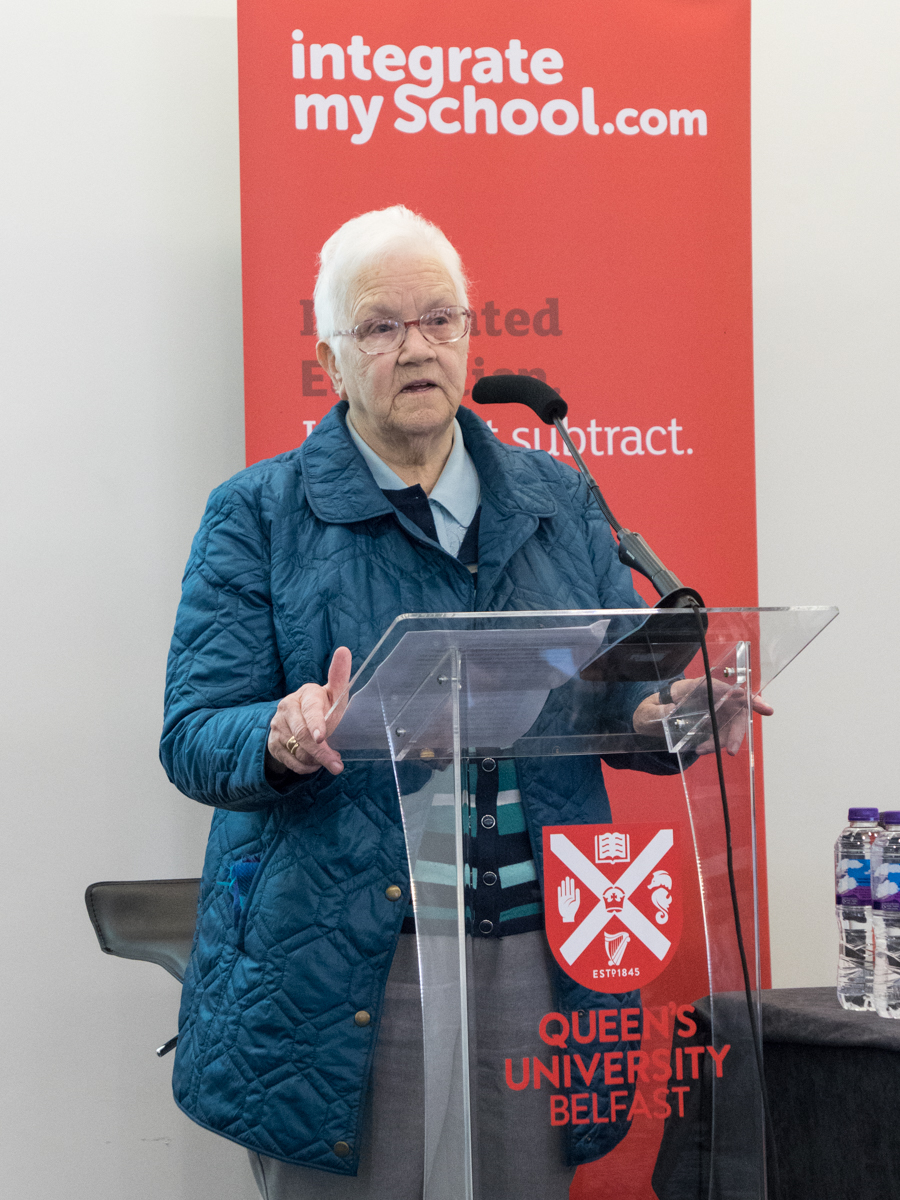
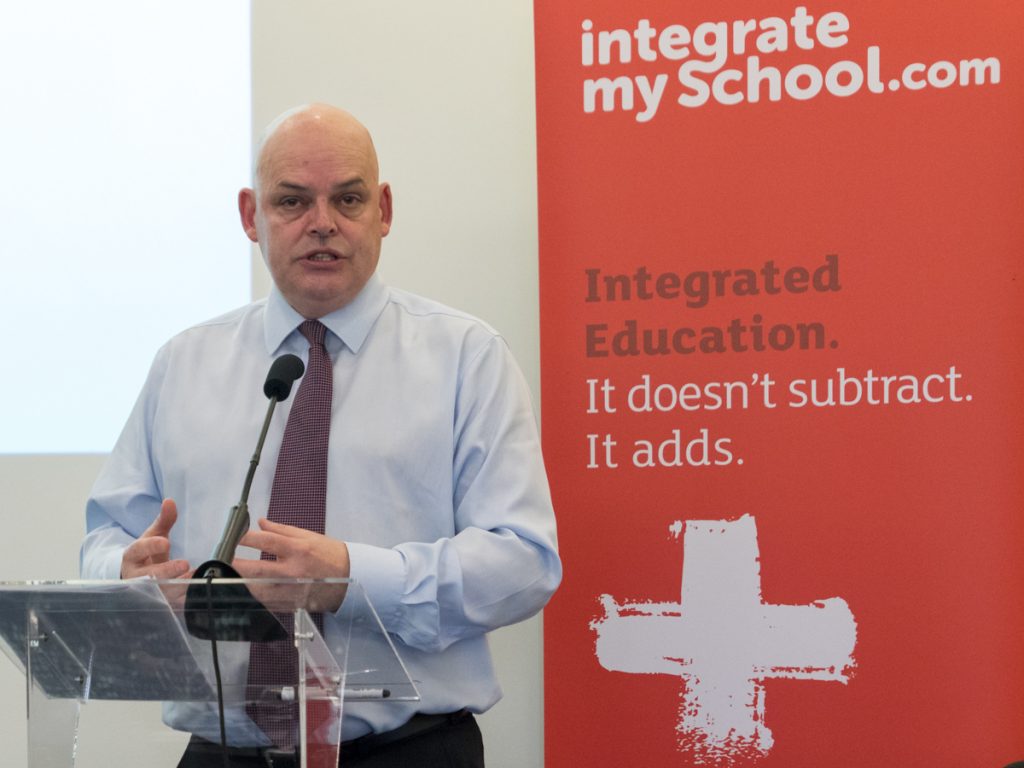
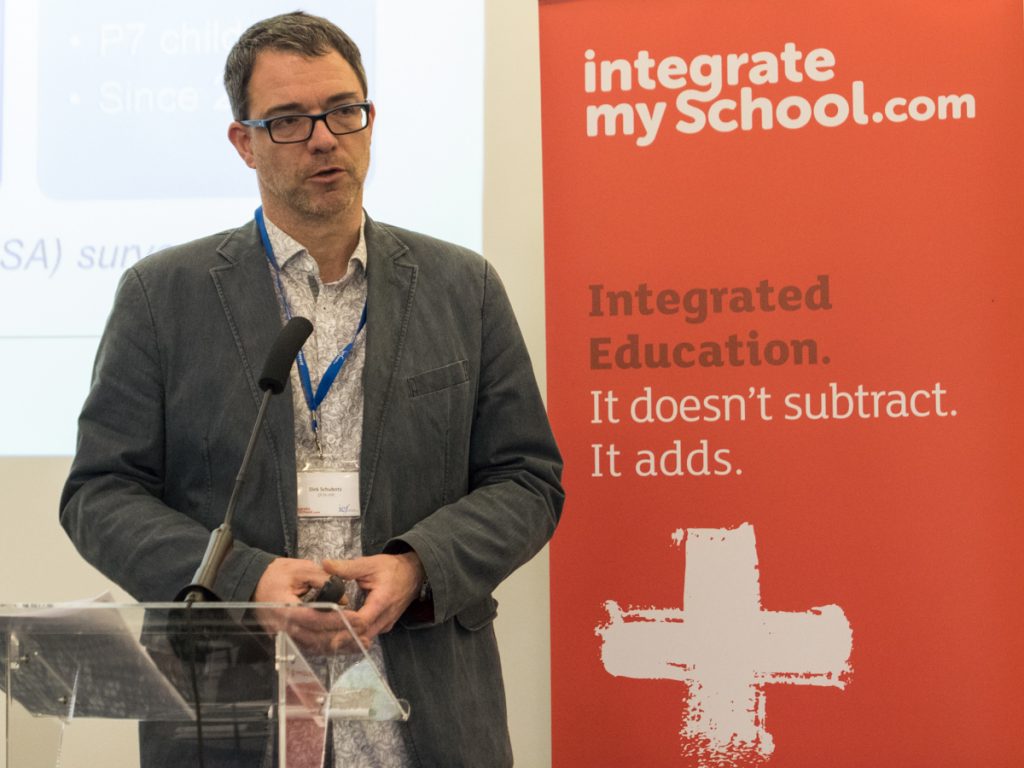
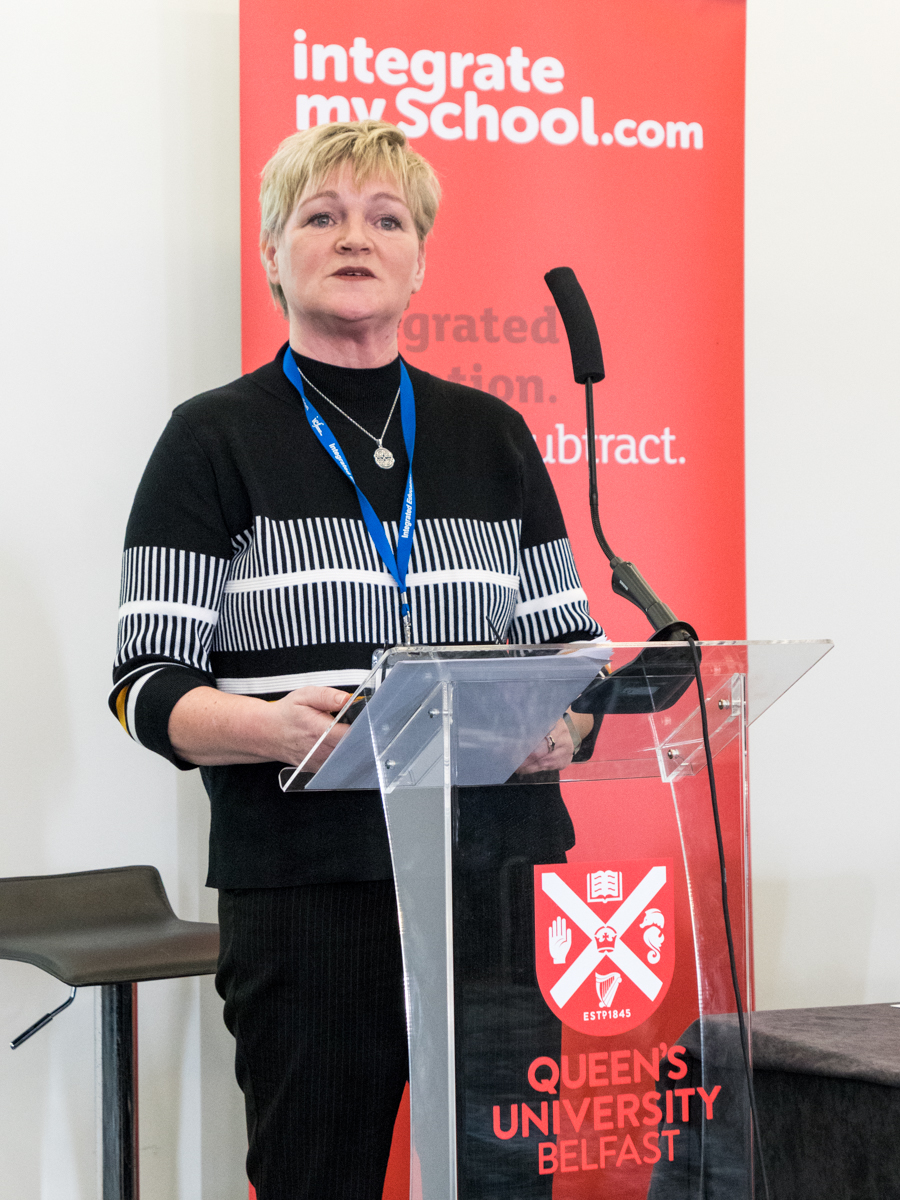
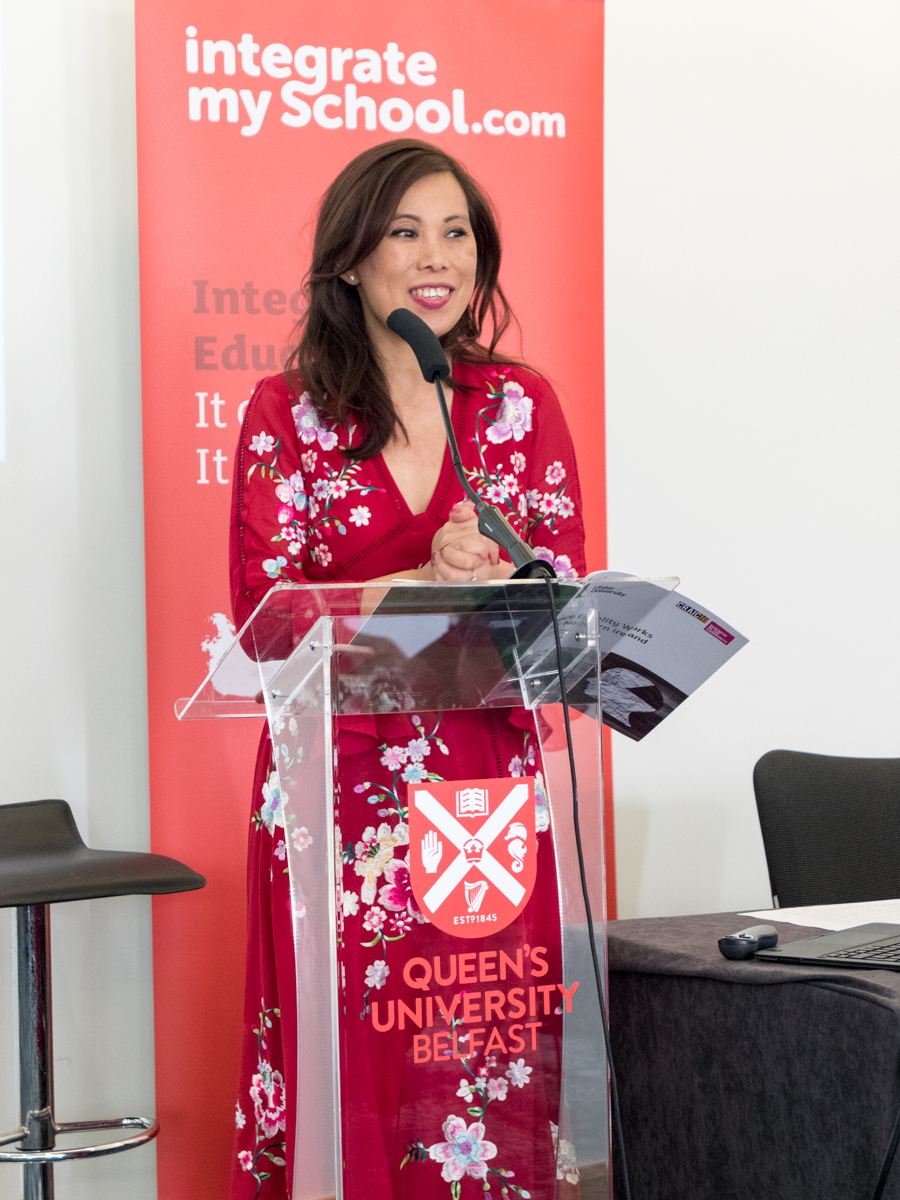
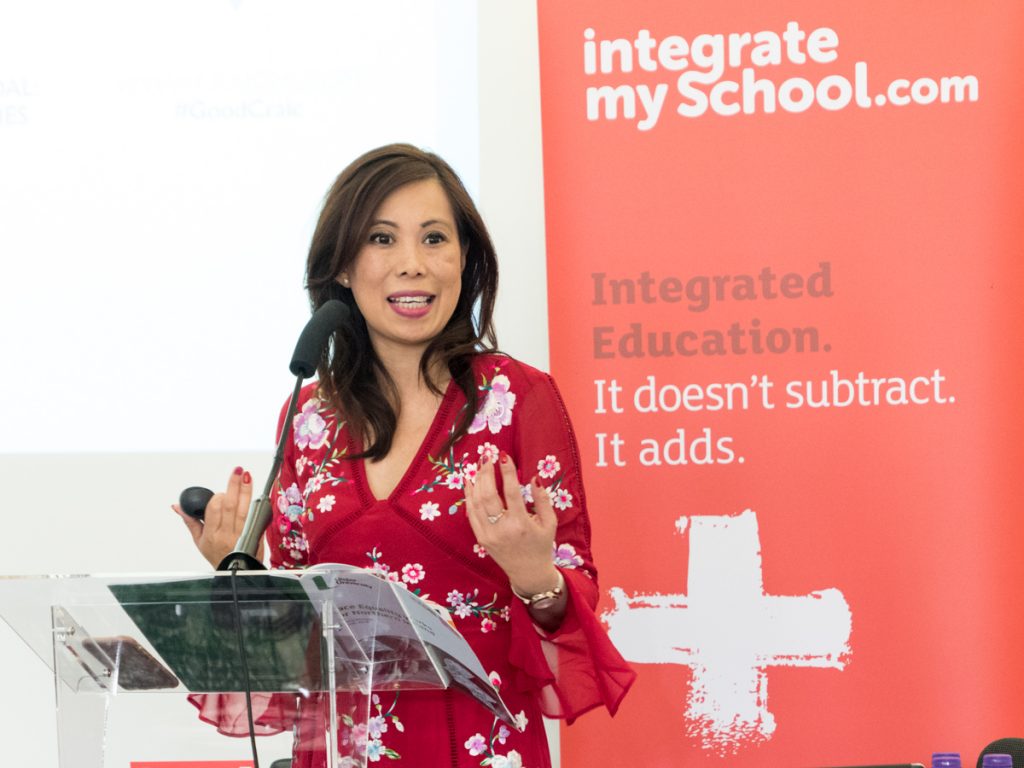
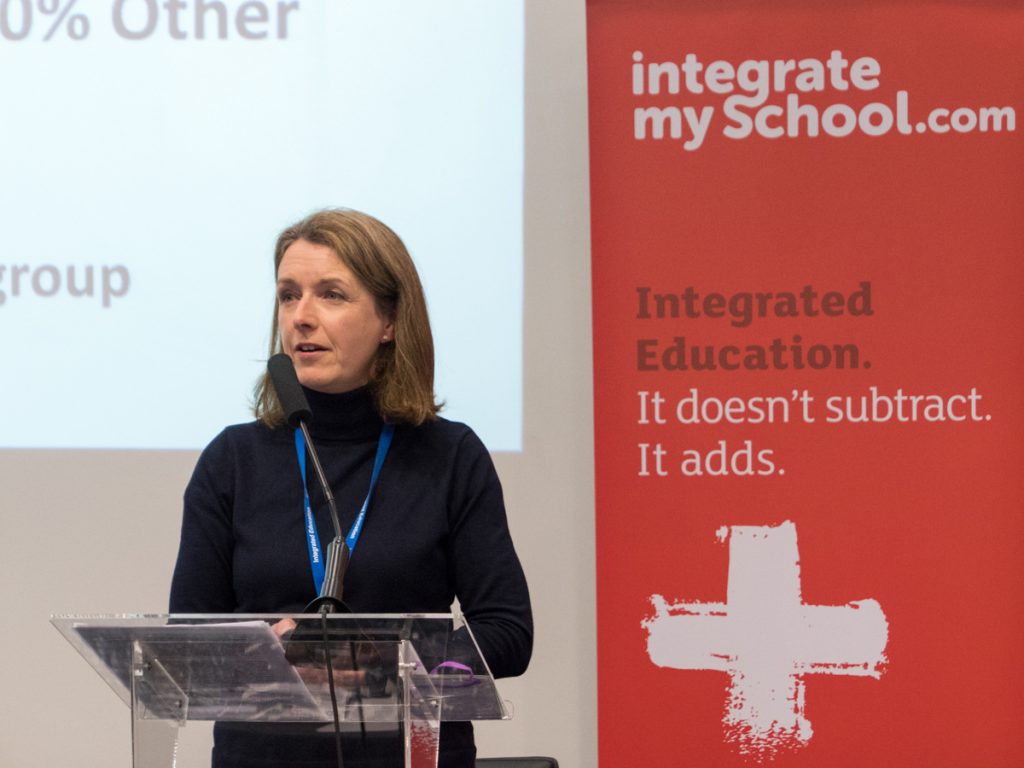
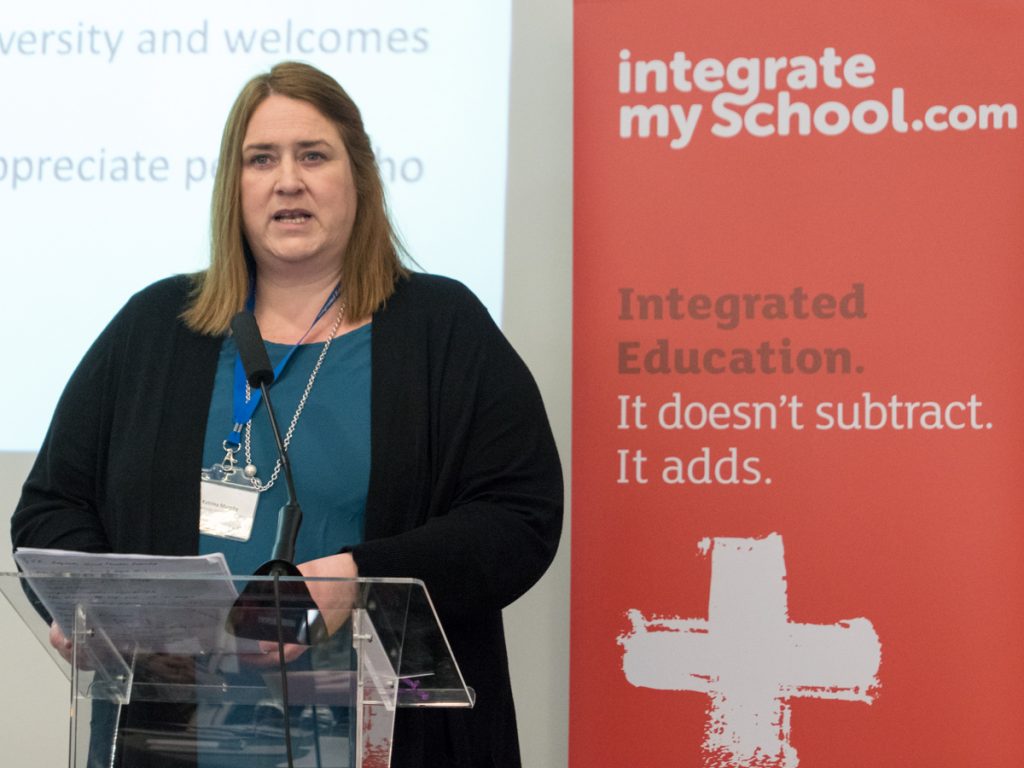
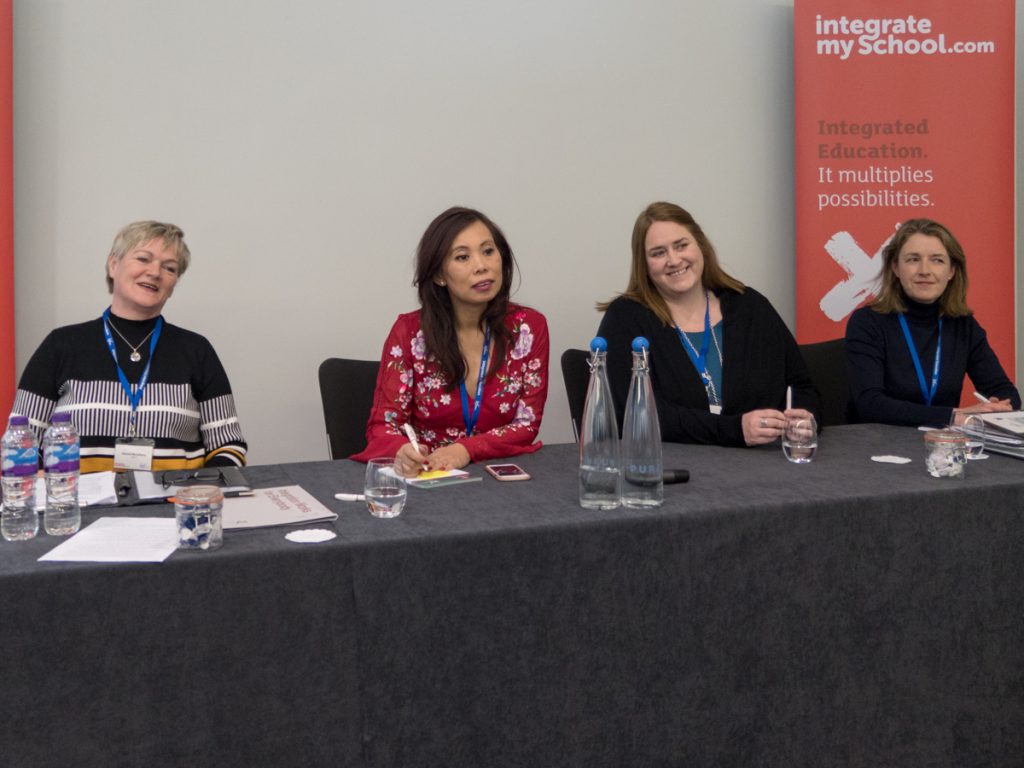
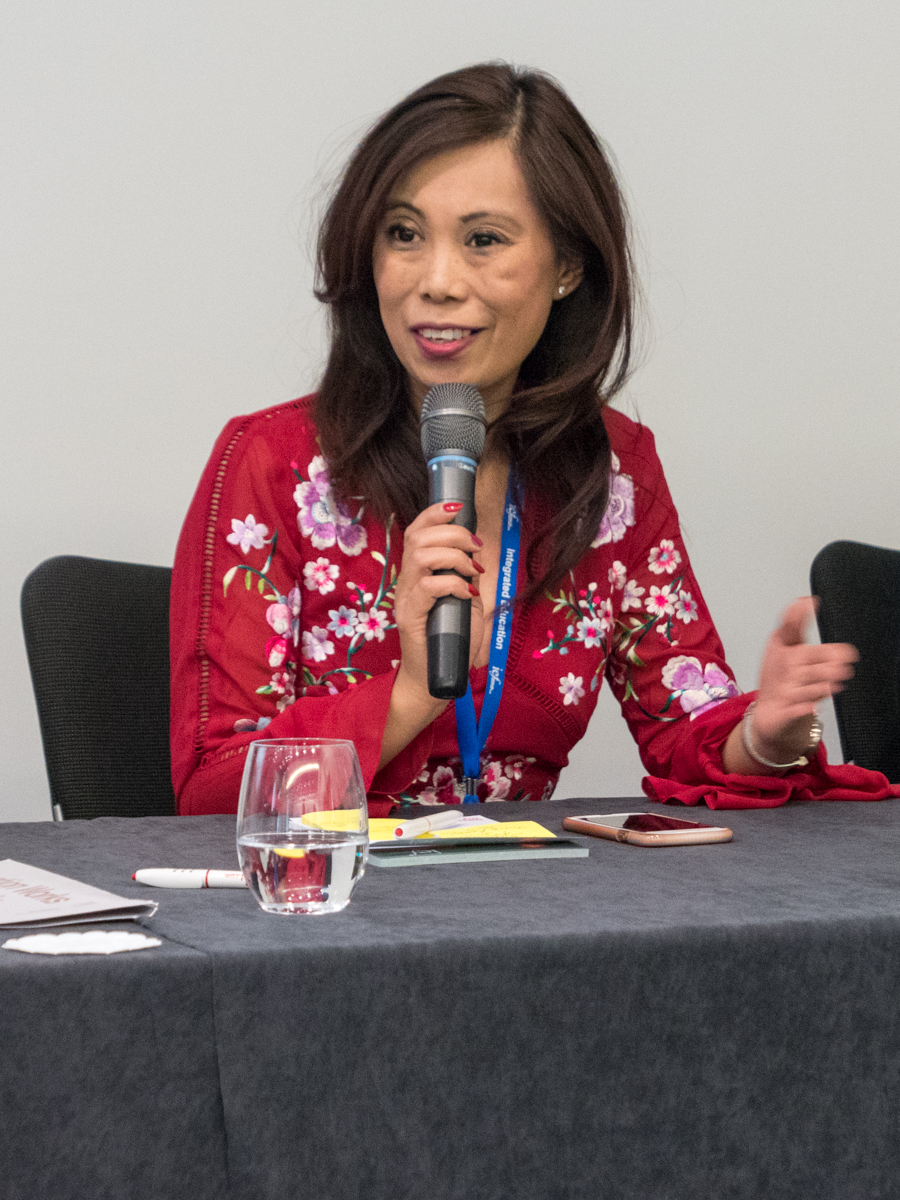
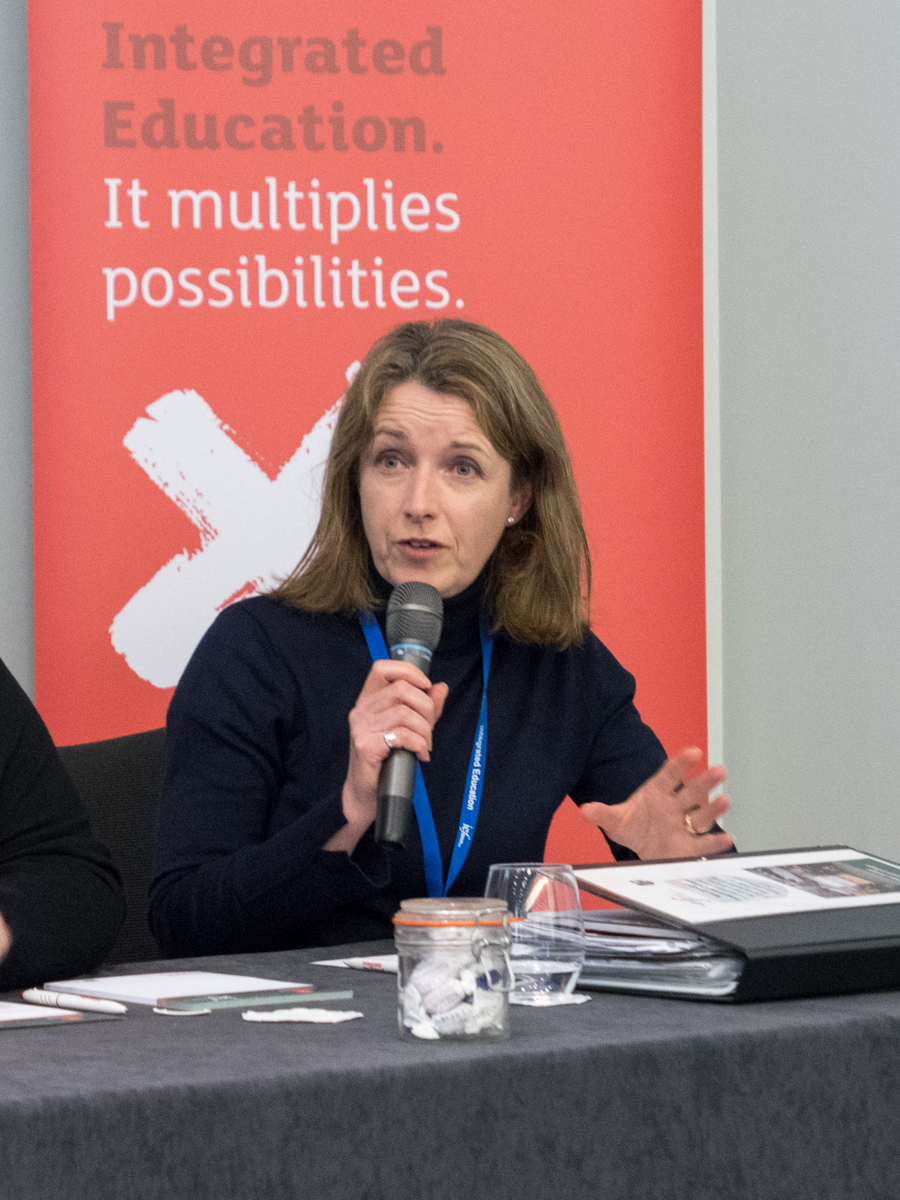
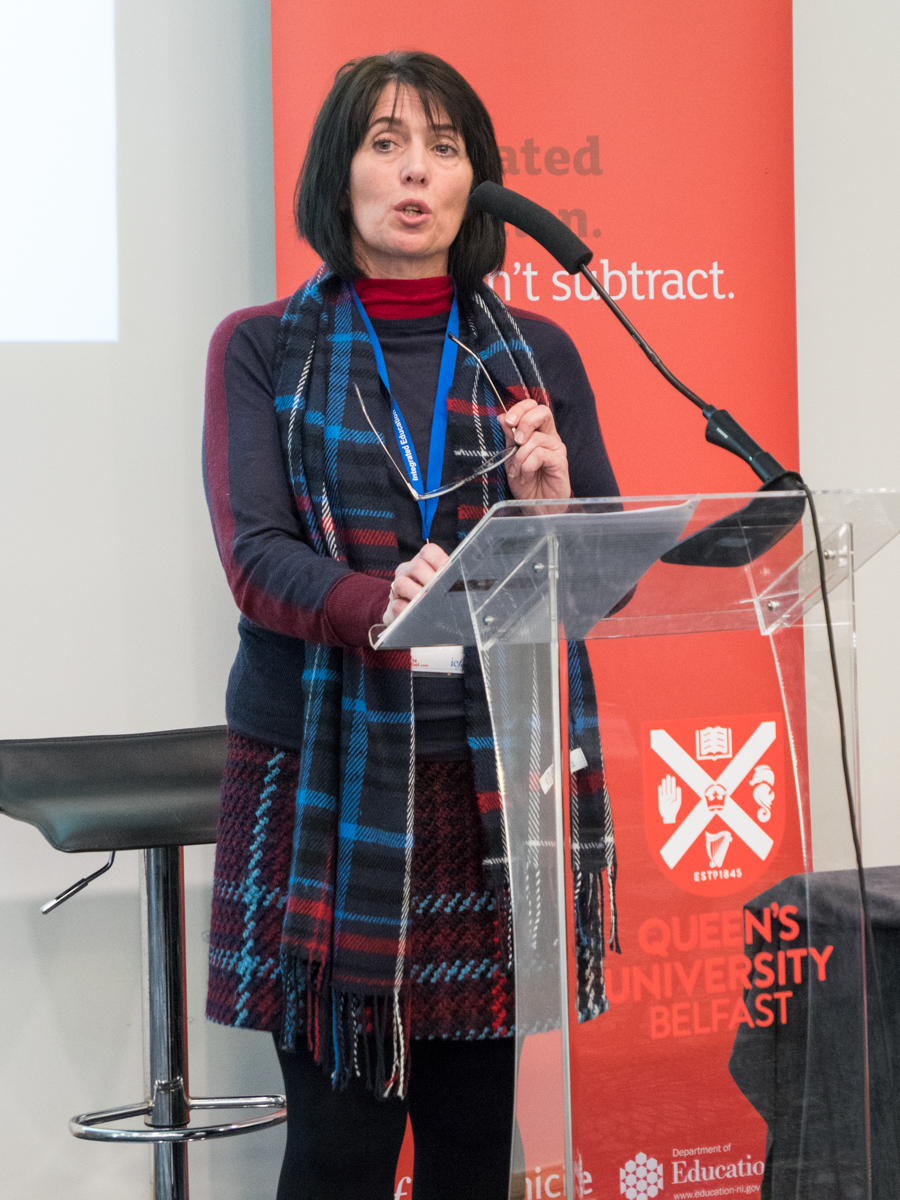
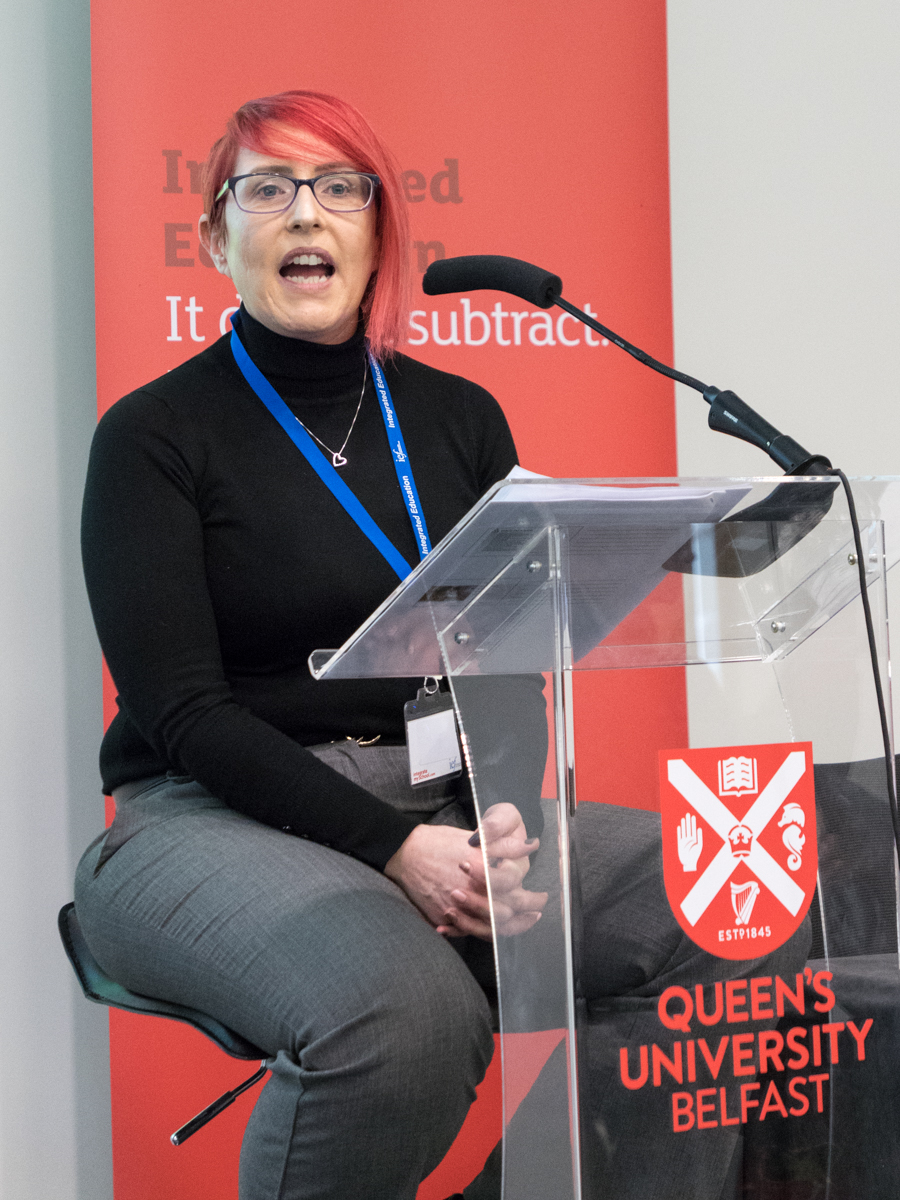
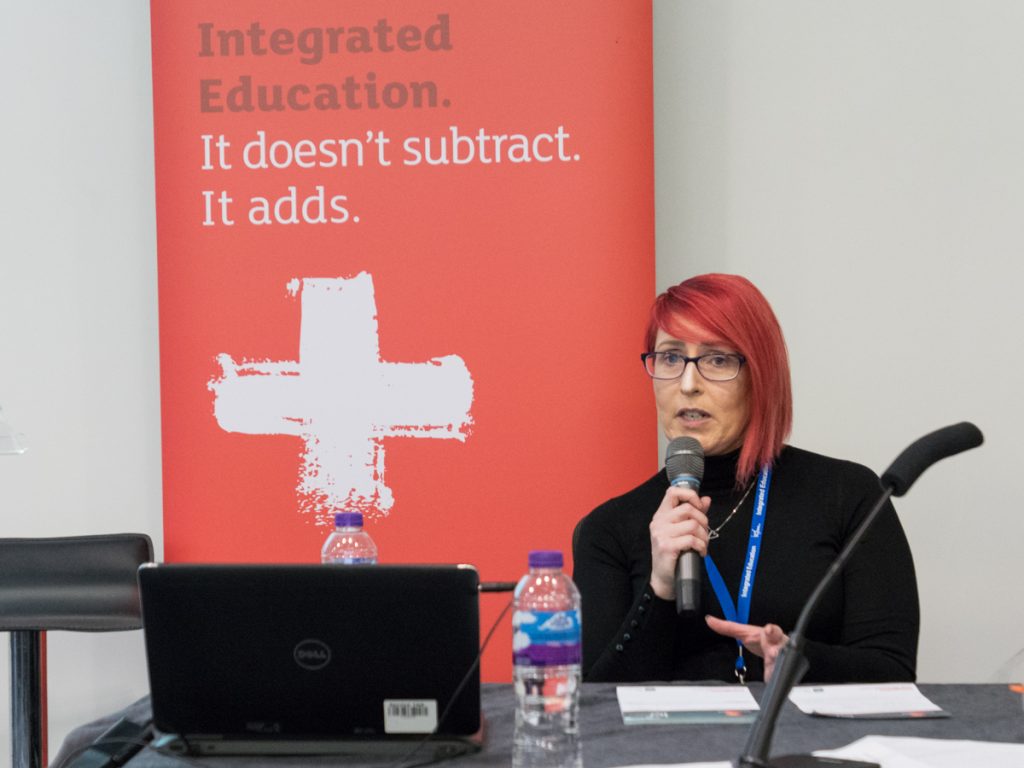
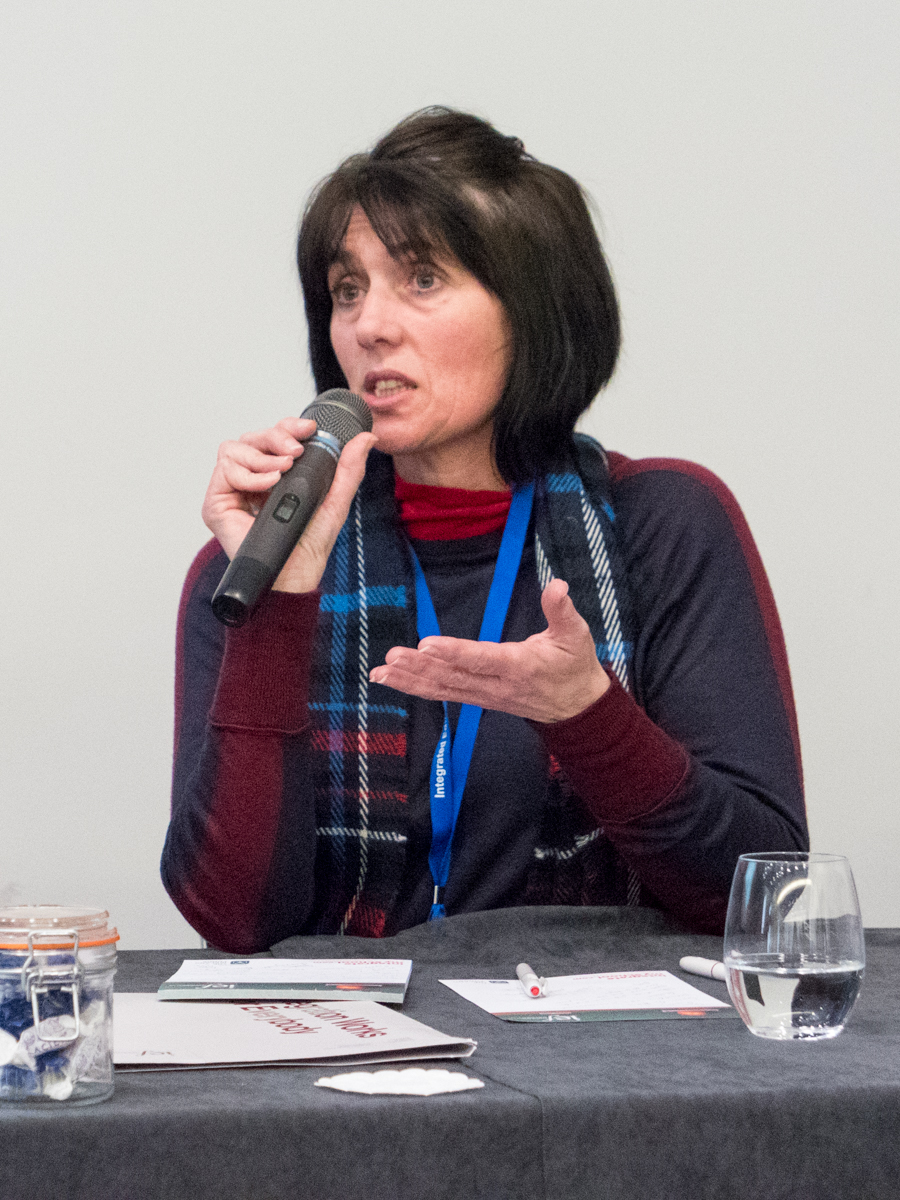
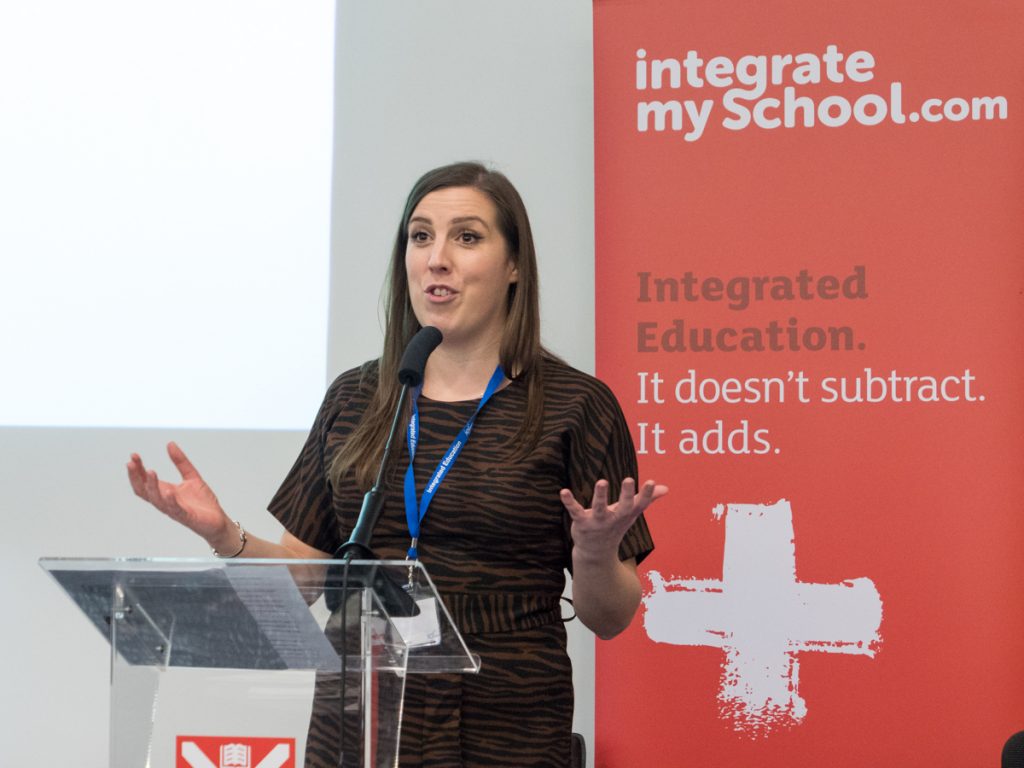
Originally published at Mr Ulster.
Peacebuilding a shared Northern Irish society ✌️ Editor 🔍 Writer ✏️ Photographer 📸 https://mrulster.com
Discover more from Slugger O'Toole
Subscribe to get the latest posts to your email.
